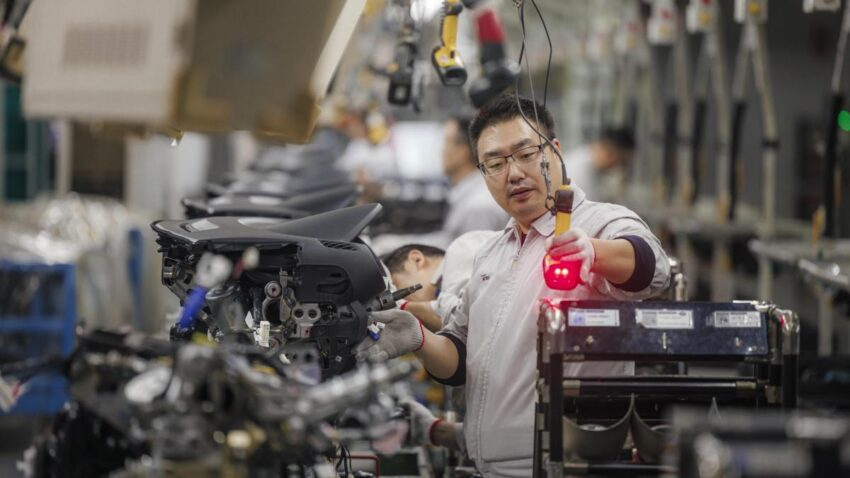China’s manufacturing sector has shrunk for the second consecutive month after energy shortages and turmoil in the property industry rocked the world’s second largest economy.
The manufacturing purchasing manager’s index (PMI) reported a headline reading of 49.2 last month, below the 50 level that indicates expansion, according to official figures.
The data will escalate concerns that the slowdown in China is gathering pace as construction slows and high commodity prices hit factories.
The manufacturing sector has steadily slowed this year, with output in September growing at its most feeble pace since March last year because of new environmental rules, power rationing and higher raw material costs.
A sub-index for production slipped to 48.4 in October from 49.5 in September, while a gauge for new orders contracted for a third month in a row.
Zhang Liqun, an analyst at the China Logistics Information Center, said: “About one third of the surveyed companies listed insufficient demand as their biggest difficulty, indicating inadequate demand had restricted their production.” A measure for factory gate prices rose to 61.1, the highest level since 2016, indicating that inflationary pressures are building at a time when the broader economy is slowing.
The economic backdrop will leave policymakers walking on a tightrope as they consider measures to stimulate the economy without stoking inflation.
Analysts polled by Reuters expect the People’s Bank of China to refrain from attempts to stimulate the economy by reducing the amount of cash banks must hold in reserve until the first quarter of next year.
The economy has been hit by many problems, from computer chip shortages and logistics bottlenecks to electricity disruptions and Covid lockdowns.
Hao Zhou, an economist at Commerzbank, said: “Production remains weak, indicating the demand problem may be relatively large, and some easing of policy is still needed.”
The economic slowdown has coincided with reforms by President Xi to quell discontent over plutocrats and to cement his own power. His “common prosperity” drive has clipped the wings of moguls in property, technology, gaming, entertainment and private education. However, the economic malaise has increased pressure on him to take a softer line, especially with property and construction companies, which have been hit hard by the debt crisis at Evergrande, the developer.


